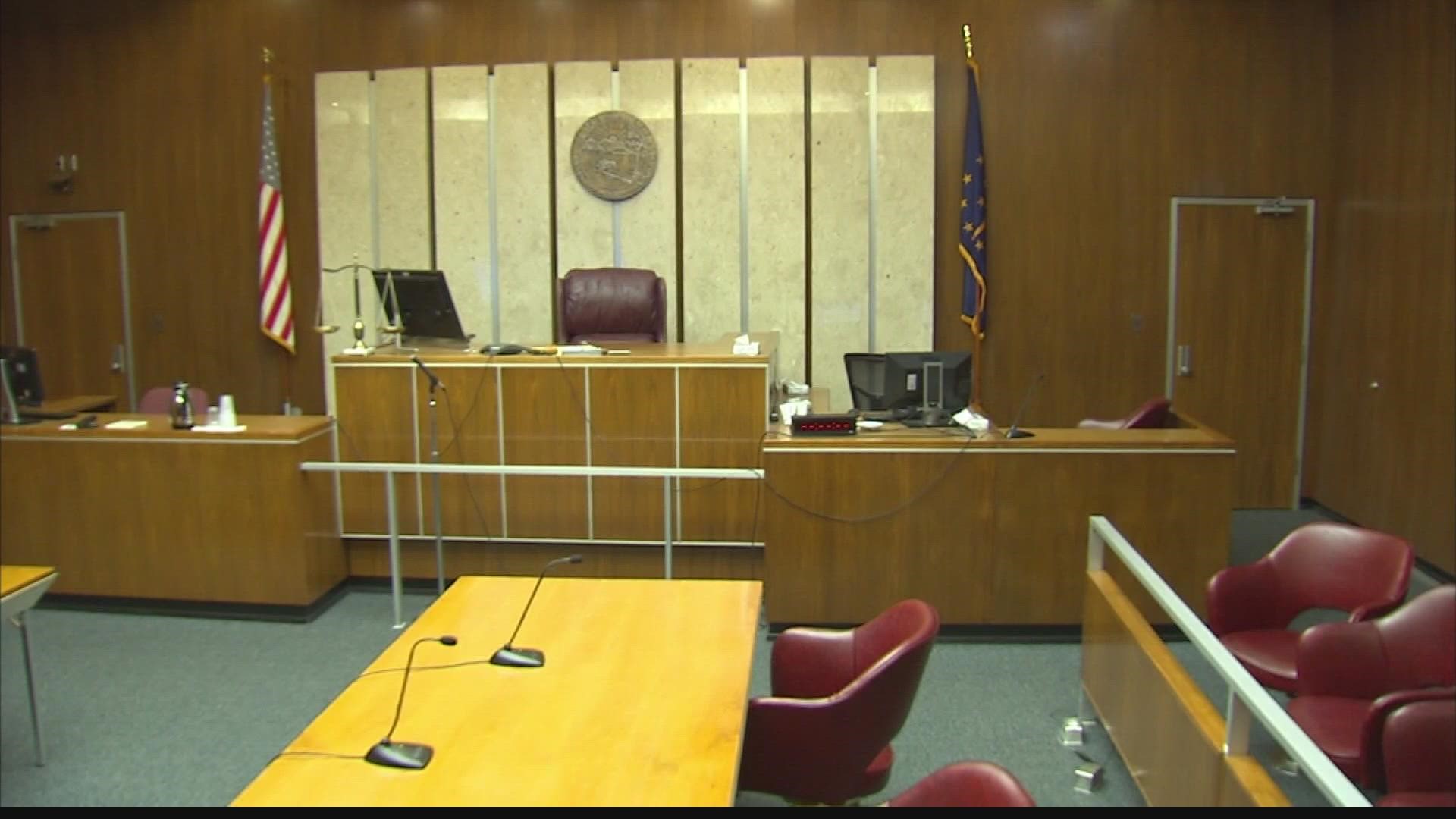INDIANAPOLIS — Inside the City-County Building in downtown Indianapolis, the jury boxes sit empty as the people accused of a crime sit longer - waiting for their day in court.
Marion County Courts pushed back the resumption of jury trials after county officials say about 90 court employees tested positive this month for COVID-19.
“It’s been really devastating to my clients,” said Katie Jackson-Lindsay, a criminal defense attorney. “Those are people merely charged for a crime, standing accused of a crime, but have not been convicted of anything.”
Jackson-Lindsay said three of her clients’ murder trials were delayed a year or more during the pandemic.
“And two out of three of those people were acquitted. They were found not guilty,” she said. “Normal preparation for a trial causes delays. But you add delay of the issues going on resulting from the pandemic and other things ... and there’s no recourse for the time they’ve lost with their families, the job they’ve lost, so it can be quite devastating.”
It’s a frustration shared by all sides of the law.
“It is a significant backlog,” said Marion County Prosecutor Ryan Mears.
The prosecutor’s office told 13News there were about 37,000 pending criminal cases – between 5,000 to 10,000 more than usual.
So how do they plan to catch up?
“I think that’s going to be the challenge,” he said. “The criminal justice system has never seen this number of cases.”
It’s a challenge faced by criminal justice systems in communities across the state and the country.
Mears’ office has hired additional trial attorneys, paralegals and victim advocates through federal American Rescue Plan funding to help with the backlog of cases.
'Not an insurmountable backlog'
Judge Amy Jones questioned whether the figures are that high, but acknowledged there are more cases than usual.
"There is a backlog,” she said. “I would say not an insurmountable backlog."
Jones said judges have been consulting throughout the state and the country on how best to tackle the caseloads.
“How can we best use data to try to really focus on whether it’s an older case – cases that may have been pending for a lengthier period of time,” she said. “The judges have really started turning their attention to kind of a dashboard of data to really try to make sure we’re getting individuals their opportunity for their day in court and to have a timely resolution even though there has been some delay caused by the pandemic.”
Jury trials are currently scheduled to resume on Feb. 1, using a phased-in approach.
Jones said there are also many other resolutions to a criminal case, other than a jury trial. She said a defendant may choose to have a judge hear his or her case through a bench trial.
Those have continued throughout the pandemic.
According to a statement from Marion County Superior Court, “Throughout the pandemic, the Court’s concern has been balancing the public health, safety and welfare of all parties who appear before the court while ensuring individuals receive their day in court. A quick review of case dispositions in Marion County shows that cases resolved by a jury trial are significantly less than cases resolved by a bench trial, agreement and dismissals.”
FOP concerned
But the Fraternal Order of Police is concerned about dismissals and plea agreements.
President Rick Snyder said he’s worried about the possibility of prosecutors agreeing to lenient plea deals in an effort to clear cases.
“We fully expect that’s exactly what we’re going to see - which is the propensity for more sweetheart deals,” said Snyder.
Mears said that won’t happen.
“This idea that we’re going to start offering lesser pleas just to work through the backlog, I don’t think that necessarily accomplishes much,” said Mears. “I think one of the issues we make sure we’re continuing to do is hold people accountable and move forward in aggressive fashion. We are going to continue to move forward with prosecutions of those cases as best as we can with the facts and evidence that we have."

